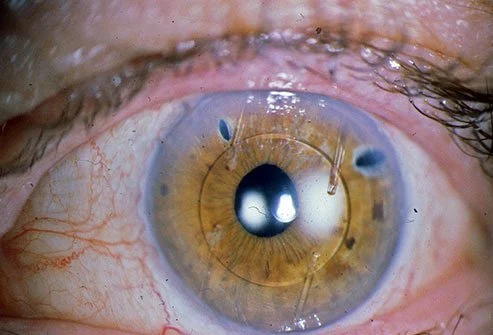IOL In Betul
IOL In Betul
IOL Surgery
IOL Intraocular lenses (IOL) are small artificial lenses that are fixed to replace the natural lenses of the eyes. The surgery used to place this artificial lens is known as IOL surgery.
What is intraocular lens surgery?
The normal function of the lens is to bend light rays and help us see things. An IOL surgery can be done to remove the natural lens that may be affected due to cataracts or refractive errors and replace them with an artificial one. There are different forms of IOLs that are implanted depending on the nature of the refractive error, and are advised only when there are no alternatives like LASIK and PRK surgeries for refractive error correction.

Who qualifies for IOL surgery?
Anyone who has been prescribed the surgery by a certified ophthalmologist is eligible for IOL implant surgeries. This procedure involves a lot of risks and hence, one should consider the opinion of a specialist before opting for an IOL surgery.
When do you need to see a doctor?
IOL surgeries can be done for two main conditions – cataracts and refractive errors. People who have undergone a cataract surgery or are facing issues in vision because of a cataract should consult their doctors for a possible surgery and an IOL implant.
On the other hand, people who have farsightedness (presbyopia) are also advised to undergo refractive lens exchange surgery, but this should only be done after consulting an ophthalmologist near you.
In other cases, a phakic IOL surgery can be prescribed to people with myopia or hyperopia.
What are the benefits of IOL surgery?
- Improved, clear vision – helps improve overall confidence and self-esteem
- Less reliance on glasses – specifically suited for people with presbyopia
- Replaces severely damaged lenses with new ones and helps restore vision and prevent blindness
- Different types of IOL surgeries can be customized to suit specific patient needs
- Permanent fix for anyone with vision issues due to cataracts, refractive errors and astigmatism
What are the risks of IOL surgery?
- Increased intraocular pressure that lasts for several hours after any IOL surgery due to administration of a jelly-like viscoelastic substance to help our eyes accommodate the IOL implanted; this may increase risks of glaucoma in some patients
- Corneal swelling or oedema in some patients
- Dislocation of the lens due to surgical errors
- Retinal detachment where the layer of nerve cells gets detached from the back of the eye, leading to vision loss if not treated on time; a retina specialist is involved in such cases
- Power miscalculation while implanting IOLs can lead to over or under-correction and leave the patient dissatisfied with the whole process
What are the different types of IOL Surgeries?
Depending on the nature of IOLs used in any surgery, they can be divided into three main categories:
- Surgeries involving monofocal IOLs which have one focusing distance and are suggested to people to fix their distant vision. They are prescribed spectacles for near vision if needed.
- Surgeries involving multifocal IOLs which have multiple powers set for adjusting to different distances. These lenses can be used as replacements for bifocal or progressive glasses but may also take more time for the brain to adjust to the vision and cause halos or glares around objects.
- Surgeries involving accommodative IOL implants which can accommodate as per the shape of the eye and can help eliminate the need for reading glasses completely. They can be used for both near and distant focus.
- Surgeries involving toric IOLs take care of astigmatism, which is nothing but refractive error caused by abnormal curvature of the cornea or the lens.

